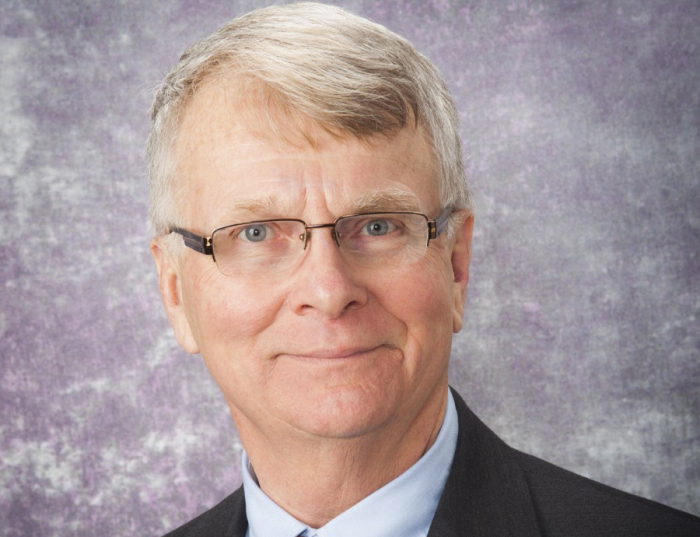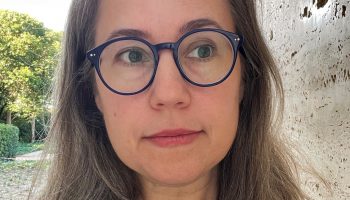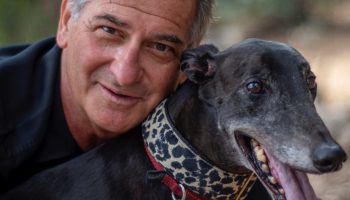Cancer is so prevalent in the United States that most adults know of at least one person, and often several, who have been diagnosed with one of more types.
According to the Centers for Disease Control and Prevention, it is the second-leading cause of death among Americans.
Head and neck cancer, which does not include brain or eye cancers, accounts for 4% of all of the cancers in the United States. Cell growth that gets out of control can start in the sinuses, within and behind the nose, throughout the mouth, within the salivary glands, in the throat (pharynx), in the voice box (larynx), and on the lips.
While the treatments for this type of cancer cure many patients, their toxicity causes individual, patient-specific side effects, which means that being disease-free does not liberate head and neck cancer survivors from continued reliance on their health care system.
In nearby Pittsburgh, cancer patients’ suffering after treatment is being carefully monitored, and comprehensive efforts are being taken to address it.
Jonas T. Johnson, MD, Fellow of the American College of Surgeons, will give a talk — titled “Survivorship: Helping People Adjust to Cancer Treatment” — at 2 p.m. on Saturday, July 16, in the Hall of Philosophy for the Chautauqua Women’s Club’s Contemporary Issues Forum. He replaces previously announced speaker Wendy Leonard.
Johnson is the Dr. Eugene N. Myers Professor and Chairman of Otolaryngology at the University of Pittsburgh School of Medicine and University of Pittsburgh Medical Center.

He is also a professor in the university’s Department of Radiation Oncology in the School of Medicine, its Department of Oral and Maxillofacial Surgery in the School of Dental Medicine, and its Department of Communication Science and Disorders in the School of Health and Rehabilitative Services.
Being a fellow of the American College of Surgeons means that Johnson, a board-certified surgeon, passed an evaluation of both his professional competence and ethical fitness.
“I turned 70 in 2016, and I decided to reengineer my career,” Johnson said. “It was obvious that I was not going to be 25 forever, so I decided to step away from the operating room … to focus on survivorship … and do it better than we’ve ever done it before.”
Partnering with Marci Lee Nilsen, an oncology nurse scientist and clinician at the University of Pittsburg, Johnson co-founded UPMC Head & Neck Cancer Survivorship Clinic, the world’s first of its kind.
“There was already one for breast cancer, but those survivors suffer in a completely different way,” he said.
According to Johnson, survivorship care encompasses patients’ “individual physical, psychosocial and economic issues that can arise after cancer treatment has ended.”
The program that he and Nilsen established “seeks to understand better what treatment-related side effects develop and to help people better navigate a sometimes tricky health care system.”
The UPMC Head & Neck Cancer Survivorship Clinic has grown quickly.
“We have had over 4,000 patients since 2016,” Johnson said. “We study them. We ask the question, ‘How are you doing?’ We use Patient-Reported Outcome Measures, … and we can tell the difference between who’s suffering and who’s not.”
As a child growing up in Jamestown, New York, Johnson was very interested in biology. He said that his first thought was to be a veterinarian, but he realized early on that in addition to good grades, vet schools were looking for experience working with farm animals, and he had none.
Because he cared about helping people, Johnson aimed for medicine after receiving his Jamestown High School diploma in June 1965 in a graduation ceremony held in Chautauqua’s Amphitheater.
At Dartmouth College, he chose the pre-med track. For medical school, he attended the State University of New York Upstate Medical University (now Center) in Syracuse.
“As a relatively wet-behind-the-ears young person, I didn’t have a strong opinion (about what to focus on),” Johnson said. “… I kind of liked everything. It was hard not to.”
Because Syracuse asked its medical students to have a mentor, he chose one, George Reed.
“Growing up, the only doctor I ever saw was an ENT (ear, nose and throat), so I signed up with an ENT,” Johnson said. “He was a superstar. I wanted to be just like him. I was heavily influenced by George Reed.”
Required to focus on general surgery for two years following medical school, Johnson went south to the Medical College of Virginia in Richmond.
“That was at the height of the Vietnam War,” he said. “The government was giving out draft numbers to 100% of male doctors. George Reed said that if I came back to SUNY I’d need a deferment (from obligatory military service) through the Berry Plan. It deferred people through their residency on the premise that they would come into the military afterwards.”
Returning to SUNY Upstate in 1974, Johnson completed his three-year otolaryngology residency. In 1977, he joined the U.S. Air Force for two years.
“By then, the war was over,” Johnson said. “I was in Wilford Hall (Medical Center) in San Antonio and I was teaching.”
In 1979, he said, he put his “three babies in the car and went to Pittsburgh. As a young surgeon, I was very anxious that I was needed. The situation in Pittsburgh was growing, and I thought they needed me.”
Since he had grown up in Jamestown and married his high school sweetheart, Janis, joining the University of Pittsburgh medical faculty put Johnson and his family in closer proximity to his parents and in-laws.
A recipient of many outstanding teaching awards, Johnson has presented over 500 lectures and seminars nationally and internationally. He has served the American Head and Neck Society (including its predecessor societies), as well as other otolaryngology and surgeon related organizations, in several leadership positions.
“What’s amazing is the velocity of change (through the years),” Johnson said. “What they taught me in the 1970s was almost obsolete by the 1990s. … When I started, there were no PET scans, MRIs, Prilosec or robots.”
He included in this medical evolution: the understanding of the physiology of disease, different perspectives on what causes disease (“that tobacco causes disease is way too simplistic”), the instruments (“there are so many new, fancy, exotic instruments that allow us to do things in a minimally invasive way”), and the interventions.
“Everything changes,” Johnson said. “So, riding on this change for the last 40 years has been amazing. The challenge is to keep up with it.”
Helping others by teaching in an academic environment, studying what his students are doing so that they can learn, and conducting research that “allows us to advocate for change” is what Johnson said he has most enjoyed.
“The way I see it is that I’ve spent my entire life changing, because first, the world was changing — biomedicine and surgery,” Johnson said. “During this time, I’ve been trying to educate and to advocate for change. … I’m interested in engineering change.”
The change in his job description six years ago “to help people who have been treated for throat cancer and recover” is what most energizes Johnson now.




